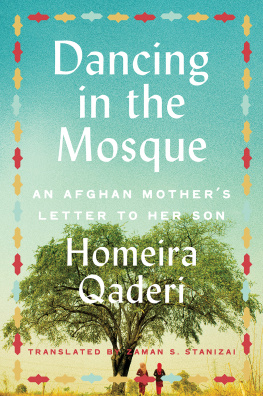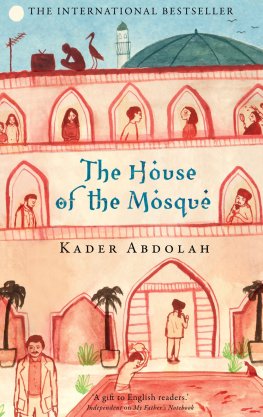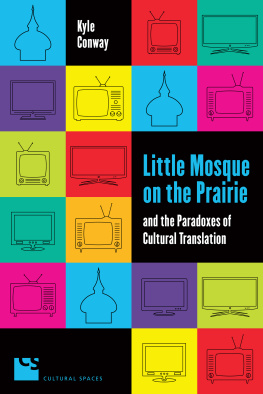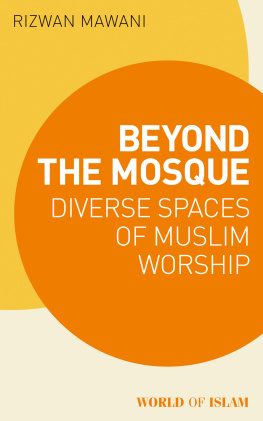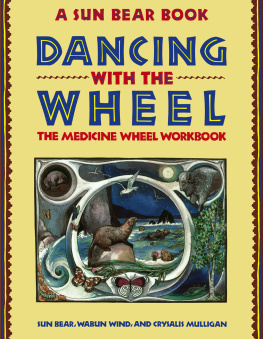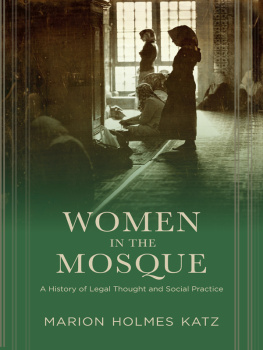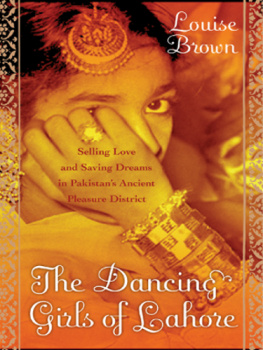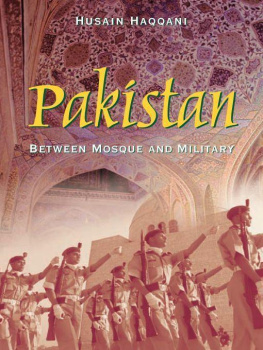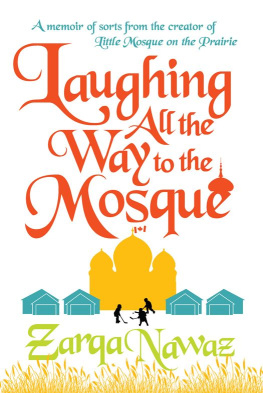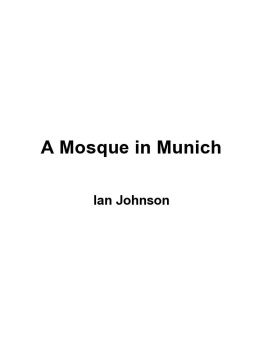Homeira Qaderi - Dancing in the Mosque
Here you can read online Homeira Qaderi - Dancing in the Mosque full text of the book (entire story) in english for free. Download pdf and epub, get meaning, cover and reviews about this ebook. year: 2020, publisher: Harper, genre: Non-fiction. Description of the work, (preface) as well as reviews are available. Best literature library LitArk.com created for fans of good reading and offers a wide selection of genres:
Romance novel
Science fiction
Adventure
Detective
Science
History
Home and family
Prose
Art
Politics
Computer
Non-fiction
Religion
Business
Children
Humor
Choose a favorite category and find really read worthwhile books. Enjoy immersion in the world of imagination, feel the emotions of the characters or learn something new for yourself, make an fascinating discovery.
- Book:Dancing in the Mosque
- Author:
- Publisher:Harper
- Genre:
- Year:2020
- Rating:4 / 5
- Favourites:Add to favourites
- Your mark:
- 80
- 1
- 2
- 3
- 4
- 5
Dancing in the Mosque: summary, description and annotation
We offer to read an annotation, description, summary or preface (depends on what the author of the book "Dancing in the Mosque" wrote himself). If you haven't found the necessary information about the book — write in the comments, we will try to find it.
Dancing in the Mosque — read online for free the complete book (whole text) full work
Below is the text of the book, divided by pages. System saving the place of the last page read, allows you to conveniently read the book "Dancing in the Mosque" online for free, without having to search again every time where you left off. Put a bookmark, and you can go to the page where you finished reading at any time.
Font size:
Interval:
Bookmark:
To those who value and respect equality
This is a work of nonfiction. The events and experiences detailed herein are all true and have been faithfully rendered as I have remembered them, to the best of my ability. Some names, places, identifying details, and circumstances have been changed in order to protect the privacy and/or anonymity of the various individuals involved.
Once upon a time, when there lived a Merciful God, behind the mountains in a distant city a family was given a son with the nickname Shah-Pesar, One of Regal Descent. His real name was Mushtaq. Shah-Pesar was very handsome. He was his familys lucky charm. One day, to escape his boredom, the familys lucky charm began rummaging through his grannys storage closet. Shah-Pesar didnt know what he was looking for, but something drew him deeper into the dark, dusty interior. Suddenly, his hand closed on a heavy object. It was an old metal lamp.
No sooner had he wiped the hem of his sleeve across the lamps smooth surface than it became unbearably heavy and sparks shot out of its spout. Astonished, Shah-Pesar dropped the lamp. It hit the floor with a dull thud, rolled around in a circle, and stopped.
A thick coil of smoke rose from the spout, curling toward the ceiling. A pair of stout legs materialized from the smoke, followed by a large belly, a barrel chest, muscular arms, and a huge head. The giant had a black beard topped with curly black hair. His black eyes glowed beneath heavy black eyebrows and a golden earring dangled from his left earlobe, almost touching his shoulder.
Looking down at the trembling boy, the jinni bent down on one knee, and said, Hello, Master Mushtaq, I am at your service.
Shah-Pesar took a quick step backward and said in a quivering voice, Why at my service?
Because you are the Shah-Pesar of the family, the jinni said. Your wish is my command.
What kind of wish?
I am the king of all the jinnis. I am powerful enough to grant you anything you desire. I can take you anywhere you wish to go in the blink of an eye or bring you anything you wish just as quickly.
Bring me a black horse with a long mane and a gleaming coat.
The jinni of the lamp bowed at the knee.
And a strong hunting bow and eagle-feathered arrows, Shah-Pesar added.
The jinni spun around three times, then three times more. Clapping his hands, he shouted, Oh, the long-maned black horse of the gleaming coat, appear from the darkness! Master Mushtaq wants to have fun and go hunting.
A cloud of smoke enveloped the middle of the room and turned into a black horse with a full mane and a long, graceful tail. The horse held a hunting bow in its mouth. Bowing down, the horse of the gleaming coat placed the bow at Shah-Pesars feet and said, I am all yours, Master Mushtaq.
Dear son,
My grandmother, Nanah-jan, never told me stories like that. In the stories she saved for me, there were no jinnis or magic wands to make my dreams come true. My stories were populated with wild monsters like Baba Ghor-ghori, Barzanghi, Mard-azma, Dokhtar-khor, and hundreds more. My grandmother had more monster stories than beads on her tasbeh. The purpose of her stories was primarily to keep me from playing with boys, cutting my hair, wearing short skirts, climbing trees, talking to the neighbor girl over the wall, laughing out loud, and ever arguing with Nanah-jan. If I did any of those forbidden things, she would tell me: A monster will appear out of thin air and drag me off to some horrible place where he will eat my flesh and lick my bones, or worse, make me his wife and force me to bear a brood of little hateful ogres.
My grandmother believed that one of the most difficult tasks that the Almighty can assign anyone is being a girl in Afghanistan. As a child, I didnt want to be a girl. I didnt even want my dolls to be women. In those days, apparently, I knew more ways that led to hell than streets that led to my house. Nanah-jan had told me so many stories about hell that I could describe every neighborhood in hell with my eyes closed. Which is why, when you were born, I was finally accepted and acceptable. At least I had done my duty: I was a mother in this tortured land, and I had produced a sonyou, my dearest.
But my motherhood didnt last long. I lost you early on, to the cursed laws of the city, when you were still a breast-feeding nineteen-month-old baby.
It has been 985 nights since you were taken from me. It has been 985 nights since the howling wind wolves have ripped through my lullabies. Now that I am thousands of miles away from you, from all of you, in this small room in California, the only mark of the joy of your birth is the scar gracing my abdomen. It is my badge of motherhood.
I heard that theyve asked you about your mother and that you cried when told that your mother is dead. Do not believe them! I havent died. I am living a life of exile, in a place that has its own beauty, its own laws, and its own problems. But to my eternal pain, it does not have the most important element of my being, of my soul. It does not have you.
Bread and Bullets
Afghanistan is the land of invisible bullets and the land of a death foretold, the land of doomed destinies, and the land of dejected and disgruntled youth, waiting forever for dreams that will never come true. This is how Madar, my mother, Ansari, and Nanah-jan, my grandmother, Firozah, described my homeland to me when I was barely four years old. In their eyes, Afghanistan was divided between the Russian occupiers and their communist government allies on the one side and the mujahideen on the other. But for me, Afghanistan was divided between the street in front of our house where I played during cease-fires, and the dangerous world beyond our walls when war returned and kept me stuck inside.
I was a bright, playful child, too young and energetic to understand fear, whether of invisible bullets buzzing through the air or of Russian tanks rumbling in the street outside our house. Inside those walls, there was a courtyard filled with apple and mulberry trees, and red and green grapes growing on the vine. We were three generations living there: Baba-jan and Nanah-jan, their four daughters, my aunts Kurbra, Hajar, Zahra, and Azizah, my uncles Naseer and Basheer, Agha and Madar, plus my baby brother, Mushtaq, and me.
Nanah-jan always said, A girl should have fear in her eyes.
I spent a lot of time in front of the hallway mirror, examining my eyes to discover where the fear was hiding.
Aunt Zahra told me, A girls fear is right on her eyelids.
I would turn my eyelids inside out, hoping to detect the shape or color of fear.
Madar often said, The night this girl was born, we were surrounded by fire. It felt like the city was giving birth. Before Homeira heard her own cries, she heard other peoples screams. No wonder she isnt afraid of anything.
Zahra was seventeen when she was struck by one of those invisible bullets while she was trying to pull me out of the grapevine and carry me to safety in the basement. My poor aunt fell down on her face. I could hear her gasping for breath. Blood was pouring out of her eyes. I stopped searching for the kittens and tried to find the invisible bullet in her eye, the place where a girls fear is hidden.
I cant remember a time when my homeland was not at war. My childhood began with jet-fighter attacks, bombs falling from the sky, and me trying to count invisible bullets. War and hunger, those are my earliest memories. I remember Madar trying to breast-feed my brother, even after he was past the age of two, because there was no food left to eat. Mushtaq chewed and bit my mothers breast. I heard
Font size:
Interval:
Bookmark:
Similar books «Dancing in the Mosque»
Look at similar books to Dancing in the Mosque. We have selected literature similar in name and meaning in the hope of providing readers with more options to find new, interesting, not yet read works.
Discussion, reviews of the book Dancing in the Mosque and just readers' own opinions. Leave your comments, write what you think about the work, its meaning or the main characters. Specify what exactly you liked and what you didn't like, and why you think so.

